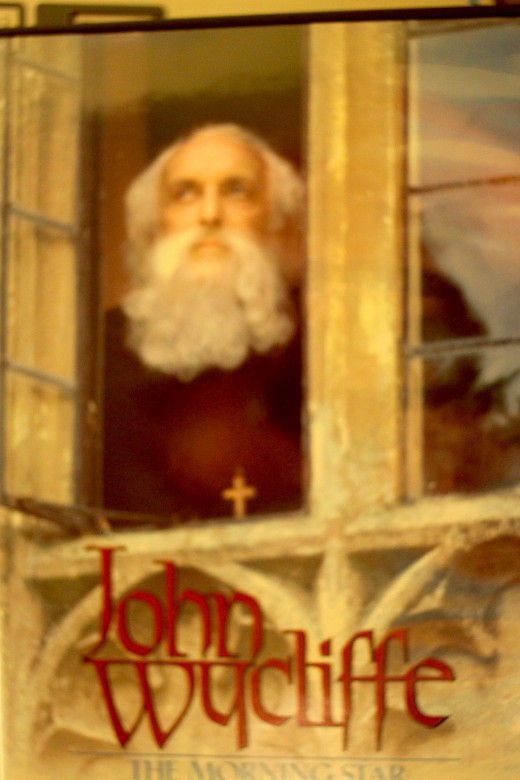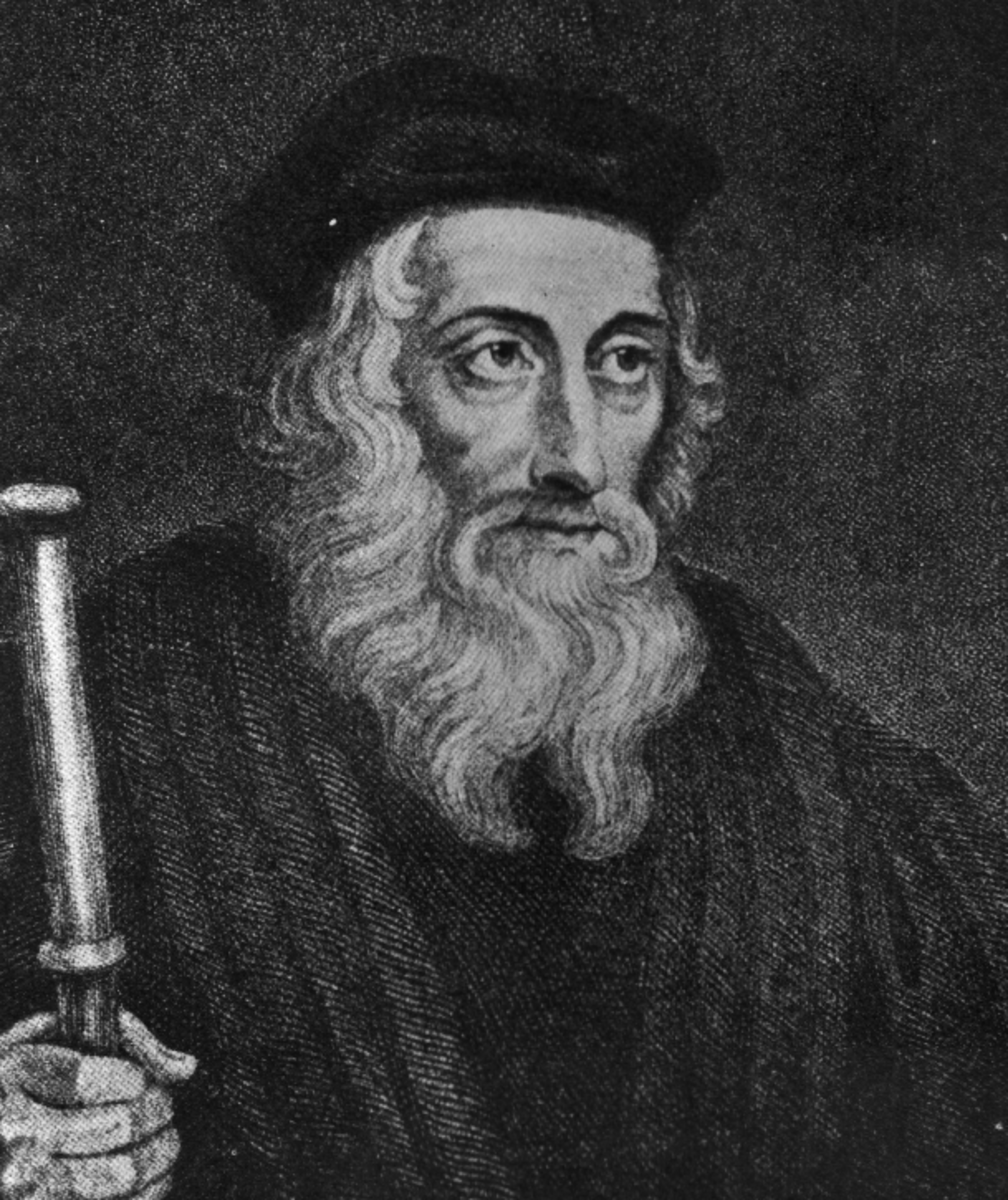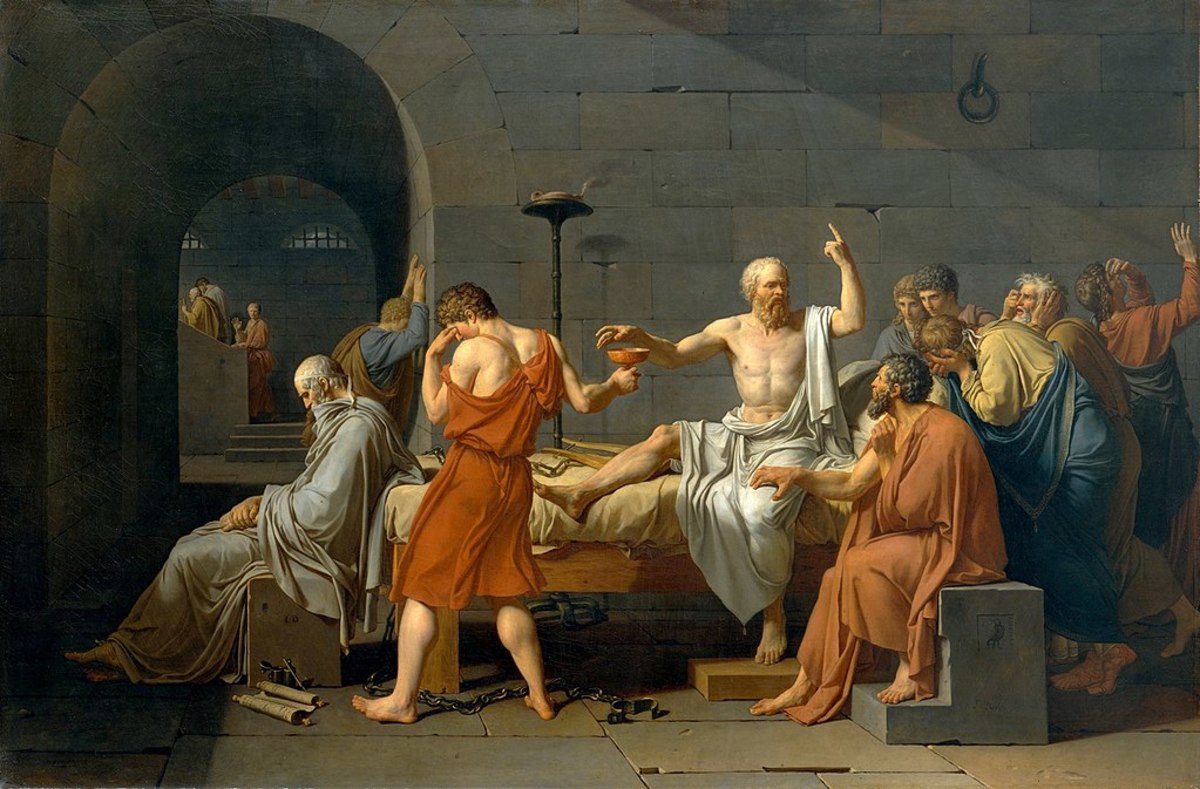John Wycliffe revisited

Theoretically, there can be only one church. Historically, this had once actually been the case. Conceptually, there is still only one church, just as there can be only one God. In theory, too, the church can do no wrong. In practicality, however, all bets are off. The question of God, religion, and church nestled under which roof is beyond ludicrous when it comes to actually having to choose. Happily, for the western world, Christianity is the main religion. Unhappily, there are so many Christian organizations that call themselves God's elect with Jesus Himself at the helm that it is no wonder that jokes about religiosity are still told best in Russian. Church-less communists have been relegated to the sidelines, but their critiques of priestly corruption remain timeless. However one slices it, religion is always, in addition to all else, the opiate of the masses and the ouija board of the rich and powerful. That said, what can one do? Where are the revolutionaries or the conservatives for that matter when the chips are down? New Ageism, Wicca, cults, and the Leo Buscaglia Foundation can offer consolation but not conquest over hell and death. Only scripture promises to wipe away every tear (Rev. 21:4). Atheists, agnostics, and nutritionists do not come close. If God lives eternally, and so can men and women who believe and cling to the old rugged cross, then this, it seems, would be a good, logical, and well-informed choice.
If only it were that simple. Men like John Wycliffe prove with both the written word and their lives that salvation is never forthright and obvious, and probably will remain indefinitely at least in part a matter of speculation and subjectivity. But without Wycliffe, the world would have had to wait who knows how long to win the right to hold a dissident, religious opinion. During Wycliffe's day, the most sacred books were safely secured in the closed-fist possession of a religious elite. John Wycliffe, the Morning Star, a dvd that gives a brief overview of the subject, begins in 14th century Lutterworth, England. The man is already dead and his grave violated, on orders, presumably, from Rome. Lifeless though he is, it is not too late to burn his remains and declare him a heretic.
There has always been something slippery about publicity. Its intentions are often thwarted. This is the case here, for in the end, Wycliffe's reputation soared, and his calls for reform have long since been approved and implemented. The rebellious translation he wrote was eclipsed by the King James version, but this work, against the wishes of his superiors, vaulted common English upward into equality with Konia Greek, Latin Vulgate, and, though this is not discussed in the film, ancient Hebrew. The movie, in a lengthy flashback, serves to round out the salient events relevant to Wycliffe's biography. Men and women of letters can be emboldened by controversial ideas that somehow enter their heads. Such a one was Wycliffe. In an early scene, Wycliffe prays, confessing that he cannot stop writing, even though what he has written might, if his opponents prevail, lead to imprisonment.
Among the activities Wycliffe denounced were indulgences sold by the clergy promising forgiveness. Money is also solicited for baptisms. Most galling of all is the fact that Latin is the only language allowed to be used in matters concerning scripture. Politics are also involved. By going against church policy, Wycliffe's enemies surmise that the wayward theologian favors the crown. Simultaneously, at Oxford and elsewhere, Wycliffe has become famous, stirring the hearts of students, who, needless to say, are next in line to the levers and pulleys of rank, privilege, and authority.
Wycliffe enjoys the comforts of academia. He does not go out and about much. But on the eve of the Peasant's Revolt, he meets with the poor, who would fight to lose their chains. He reminds them that Jesus also fought tyranny, but without weapons. They are impatient with this "religious talk". After the lower classes rise up, Wycliffe is blamed for empowering them. It seems as though he cannot hit it off with anybody. His patron, John of Gaunt, is infuriated by Wycliffe's opposition to transubstantiation. The clergy label him a "pernicious schoolman". Others say he is dangerous and misled. His inexplicable successes cause itinerant priests, called Lollards, to be arrested and imprisoned. The church's representatives look unfavorably upon individualism. The numerous trials Wycliffe must undergo eventually rob him of his health.
But Wycliffe had prominent supporters. Among them was the Queen Mother and John Purvey. He also influenced John Hus, who continued Wycliffe's work in Prague. And then, over six hundred years later, there are these filmmakers. Film locations include Oxford and Dorset. Wycliffe was a contemporary of Chaucer and therefore, it can be assumed, his language was that of Middle English. He must also have been something of a harbinger. Three centuries later, England would officially break with what is still known as the church. Several hubs elaborate upon this and other related subjects at greater length and in more detail. Something to think about and not uninteresting. . . .








